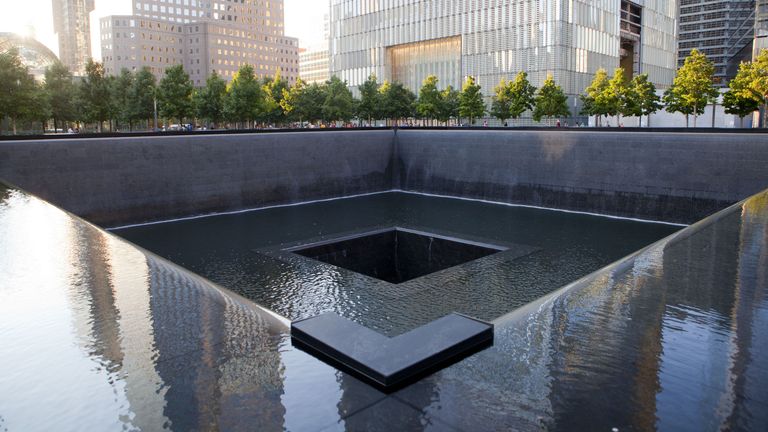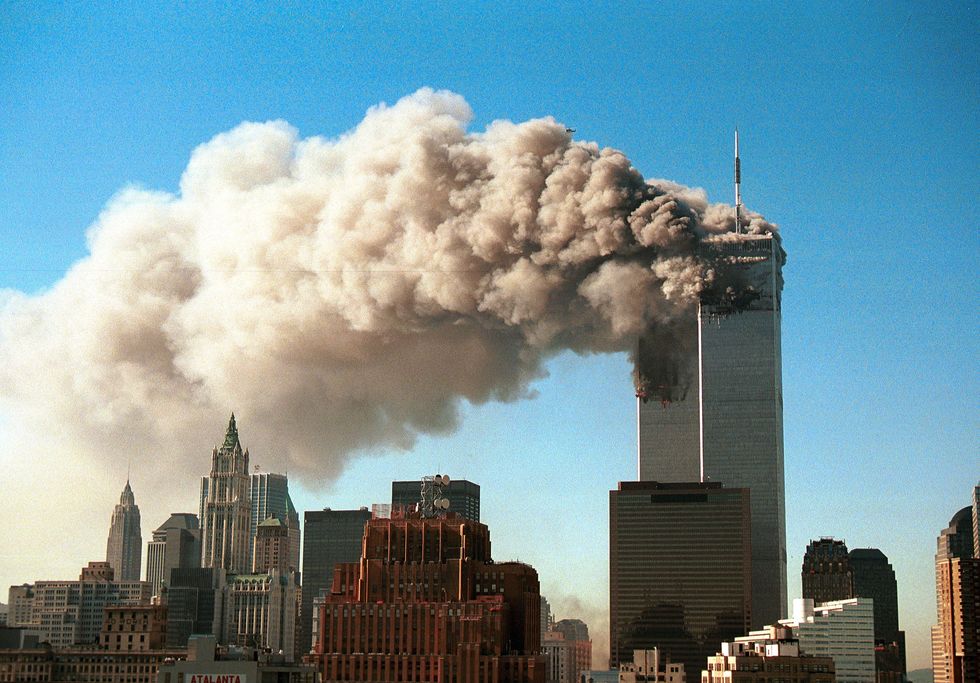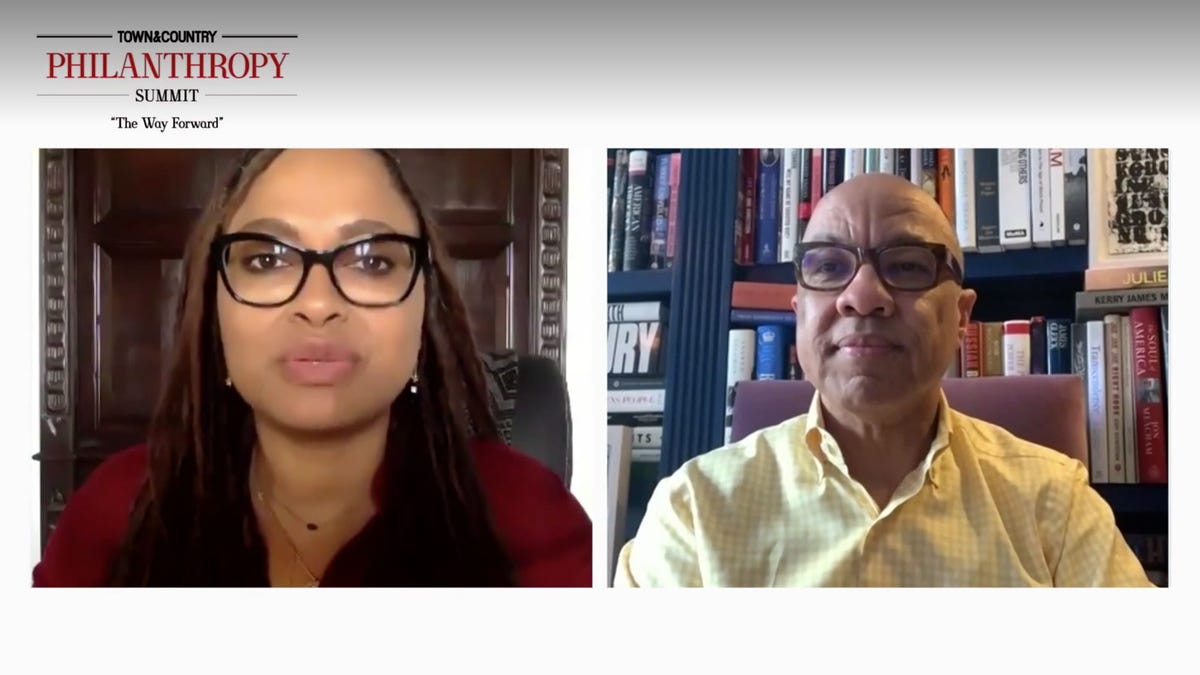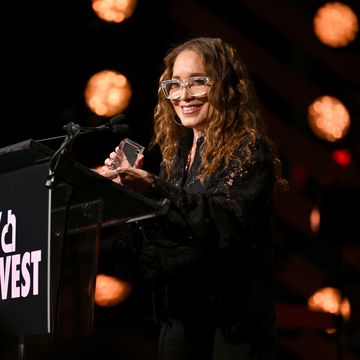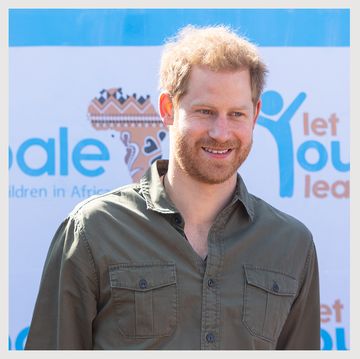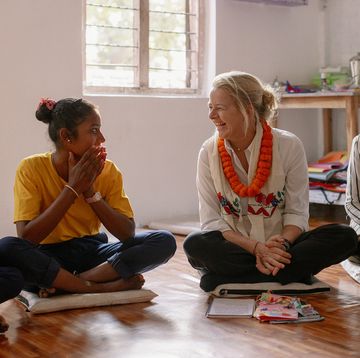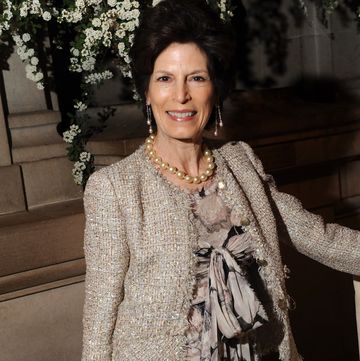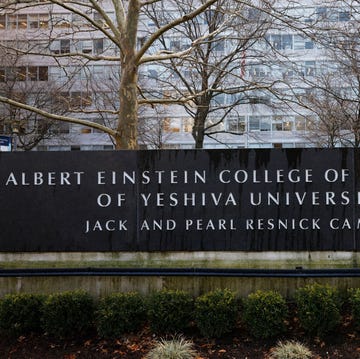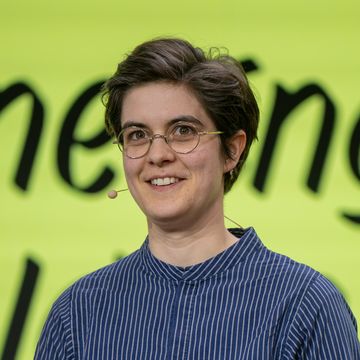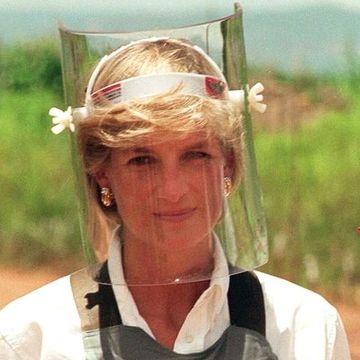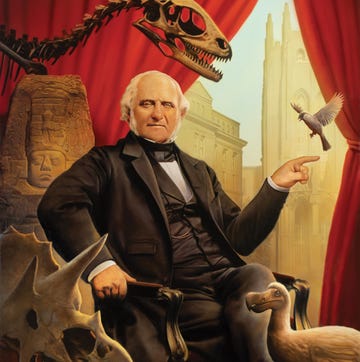This story was originally published in September of 2016, for the 15th anniversary of 9/11.
On September 10, 2001, Cantor Fitzgerald had 960 employees in New York City. The following day, American Airlines Flight 11 crashed into One World Trade Center, where the financial services firm had offices on the 101st to 105th floors.
Cantor CEO Howard Lutnick was dropping his son off at kindergarten when the first plane hit; his brother Gary was one of the staggering 658 Cantor Fitzgerald employees who died in the attack. His sister Edie, who worked as a labor lawyer on the 101st floor, had a client cancel an early morning meeting, so she delayed coming into the office. It's a decision that saved her life.
"I got a phone call from Gary saying that he was in the building and saying that he loved Howard and I and saying goodbye," she said. She can tell this story calmly now, without crying; it's a story she's told many times before.
"My parents passed away when we were younger, and I raised my brother Gary, so on a million different levels this was absolutely and completely devastating. Not only had I lost my brother, but I really also lost my child."
Howard Lutnick headed directly for ground zero, where he spent the next few hours helping to pull the few survivors out of the ruble of the collapsed towers. "He wanted to see if anyone from our floors had made it out," says Edie. "I could have lost both of my brothers that day. That's a devastation that will remain in my heart forever."
Edie describes those first few hours after the attack as chaotic. "We didn't know how many people we had lost," she said.
Eventually, the survivors met at Howard's apartment. They set up crisis centers at the Pierre and Plaza hotels, where family members could come while they painstakingly worked to figure out who was alive and who wasn't. It was during that process that Howard asked his sister to head what would become the Cantor Fitzgerald Relief Fund.
"All Howard knew was that we had to take care of these families any way we possibly could, and so he said to me 'Edie, I want to start a charity to take care of the 9/11 families, and I need you to run it,'" she remembers.
"I started thinking about all the people that I felt were more qualified to do this than I was and I realized that they were all gone. So I said 'okay.'"
Just three days after 9/11, the Cantor Fitzgerald Relief Fund was born—filing for non-profit status on September 14—and checks from across the country began to flood in. It was seeded with a $1 million personal donation from Howard.
David Kravette is one of the few Cantor Fitzgerald employees who survived the attack. He had gone down to the lobby to sign in a visitor just moments before the crash. He stayed with Cantor Fitzgerald following 9/11, and now serves as a managing director of the firm.
When asked what it was like in the aftermath, he says simply, "depressing."
"It was a different place. I mean, everyone I worked with for a long time, most of them were dead. It was a sad place to be, and we were in survival mode as a firm. I actually didn't think we'd make it as a company the first week or so," he said.
"But the company gave me something to do, and focus on. We had to juggle between rebuilding and also going to funerals. There was actually an internal website just for funeral schedules. At the time, I thought keeping busy was healthy for me."

As the digital director for Town & Country, Caroline Hallemann covers culture, entertainment, and a range of other subjects
